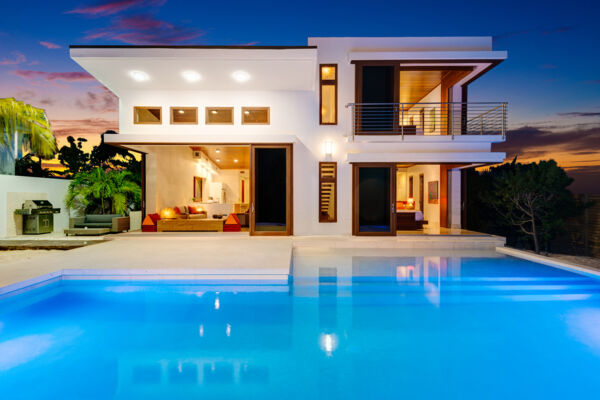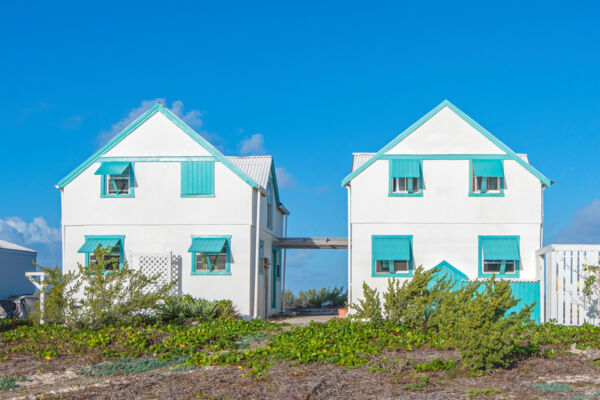Mortgages and Financing in Turks and Caicos

Land, construction, and home costs are high in Turks and Caicos, especially when compared to salaries and cost of living. As a result, it can be difficult to obtain reasonable mortgage rates, and lending institutions typically require large down payments.
In 2024, the Government created a mortgage corporation to assist local citizens in obtaining financing for residential and commercial property purchases and renovations.
For an overview of land and home prices in the country, see Turks and Caicos Real Estate Prices.
Where to Get a Mortgage
The three main local commercial banks (CIBC Caribbean, Royal Bank of Canada, and Scotiabank) offer both residential and commercial mortgages. Some of the private banks also provide mortgages.
Additionally, several other local companies, such as Meridian Financial Group and G&P Capital, are dedicated mortgage companies. These companies primarily specialize in equity-based mortgages (discussed below).
Types of Mortgages Available

Income-based mortgages are the 'traditional' mortgage, whereby lenders evaluate a borrower’s income, employment history, debt levels, and other factors to determine the mortgageable amount and rates. This mortgage type is offered by the main local banks. The minimum down payment amount for a standard income-based mortgage generally starts at around 15%, although local banks typically prefer higher amounts (25% and above).
Equity-based mortgages are based on the value of the property, rather than the borrower’s income. Often, particularly in Turks and Caicos, financing via equity-based mortgages is offered for up to 50% of the property's value (in other words, you need to make a down payment of at least half the purchase price). Decisions on an equity-based mortgage can typically be made rapidly (in less than a week), subject to any due diligence requirements (such as know-your-customer requirements). Terms for this mortgage type are typically shorter than with a traditional mortgage, but some local lenders offer up to 15 years.
Rates
Most mortgages are not fixed-rate mortgages. Some providers offer a fixed rate for the first few introductory years, but the overwhelming majority default to market rate (variable-rate or adjustable-rate mortgages).
Mortgage/Charge Registration
Mortgages are a ‘charge’ on registered land parcels, and will appear on the title excerpt from the land registry for a specific parcel. You are the owner—however, your lender has a charge against your property.
If you obtain a mortgage, you will need to register your mortgage with the land registry. The cost of registration is 1% of the mortgaged (charged) amount, along with a nominal processing fee.
Note that stamp duty on the purchase price is also payable.
Failure to Pay
In the event the borrower does not pay as required, the lender will initiate the process to recover the outstanding debt. This typically begins with an official notice, including in the Government Gazette.
Assuming that the arrears are not settled, the property may be sold. Borrowers are entitled to collect any balance that remains after the lender has recovered their debt (however, this is not automatic).
Construction Mortgages
The local banks offer construction mortgages for persons looking for financing to build themselves. It’s also possible to get these through the private mortgage brokers—however, as construction mortgages are typically equity-based, it is usually only possible to get a loan of up to 50% of land value.
